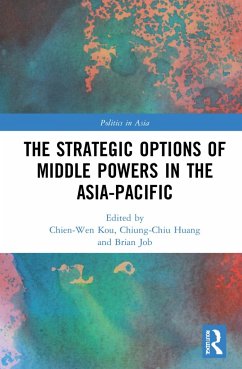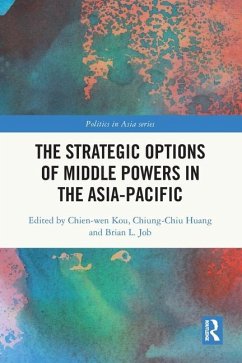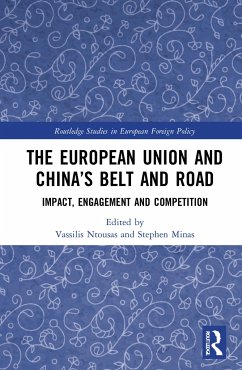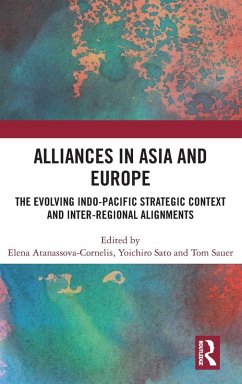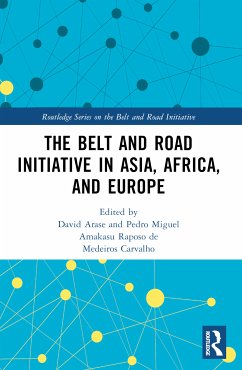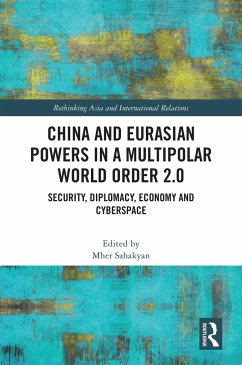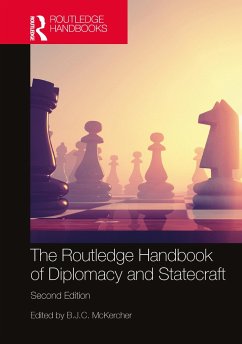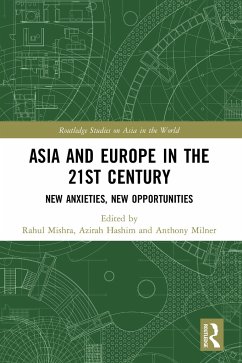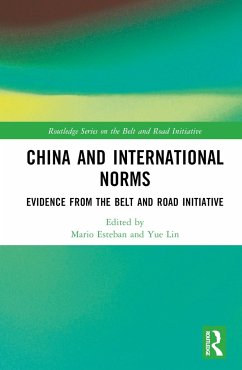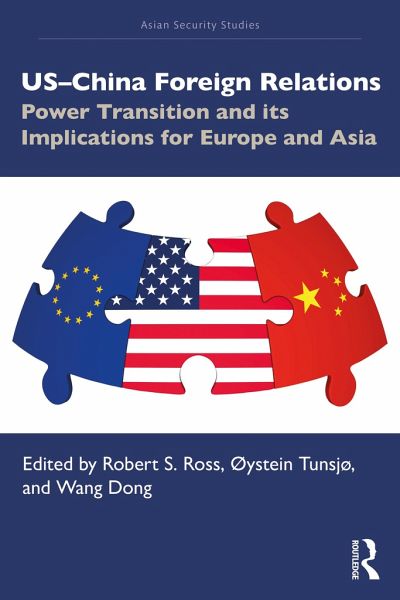
US-China Foreign Relations
Power Transition and its Implications for Europe and Asia
Herausgegeben: Ross, Robert S.; Tunsjø, Øystein; Wang, Dong
Versandkostenfrei!
Versandfertig in 6-10 Tagen
42,99 €
inkl. MwSt.
Weitere Ausgaben:

PAYBACK Punkte
21 °P sammeln!
This book examines the power transition between the US and China, and the implications for Europe and Asia in a new era of uncertainty.The volume addresses the impact that the rise of China has on the United States, Europe, transatlantic relations, and East Asia. China is seeking to use its enhanced power position to promote new ambitions; the United States is adjusting to a new superpower rivalry; and the power shift from the West to the East is resulting in a more peripheral role for Europe in world affairs. Featuring essays by prominent Chinese and international experts, the book examines t...
This book examines the power transition between the US and China, and the implications for Europe and Asia in a new era of uncertainty.
The volume addresses the impact that the rise of China has on the United States, Europe, transatlantic relations, and East Asia. China is seeking to use its enhanced power position to promote new ambitions; the United States is adjusting to a new superpower rivalry; and the power shift from the West to the East is resulting in a more peripheral role for Europe in world affairs. Featuring essays by prominent Chinese and international experts, the book examines the US-China rivalry, the changing international system, grand strategies and geopolitics, foreign policy, geo-economics and institutions, and military and technological developments. The chapters examine how strategic, security, and military considerations in this triangular relationship are gradually undermining trade and economics, reversing the era of globalization, and contributing to the breakdown of the US-led liberal order and institutions that will be difficult to rebuild. The volume also examines whether the adversarial antagonism in US-China relations, the tension in transatlantic ties, and the increasing rivalry in Europe-China relations are primarily resulting from leaders' ambitions or structural power shifts.
This book will be of much interest to students of Asian security, US foreign policy, European politics, and International Relations in general.
The volume addresses the impact that the rise of China has on the United States, Europe, transatlantic relations, and East Asia. China is seeking to use its enhanced power position to promote new ambitions; the United States is adjusting to a new superpower rivalry; and the power shift from the West to the East is resulting in a more peripheral role for Europe in world affairs. Featuring essays by prominent Chinese and international experts, the book examines the US-China rivalry, the changing international system, grand strategies and geopolitics, foreign policy, geo-economics and institutions, and military and technological developments. The chapters examine how strategic, security, and military considerations in this triangular relationship are gradually undermining trade and economics, reversing the era of globalization, and contributing to the breakdown of the US-led liberal order and institutions that will be difficult to rebuild. The volume also examines whether the adversarial antagonism in US-China relations, the tension in transatlantic ties, and the increasing rivalry in Europe-China relations are primarily resulting from leaders' ambitions or structural power shifts.
This book will be of much interest to students of Asian security, US foreign policy, European politics, and International Relations in general.





